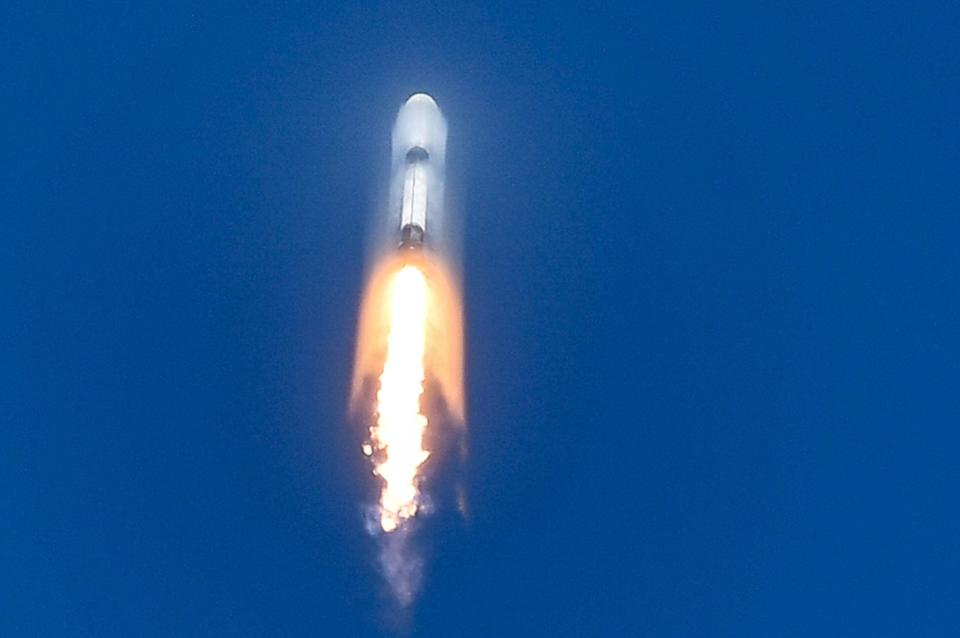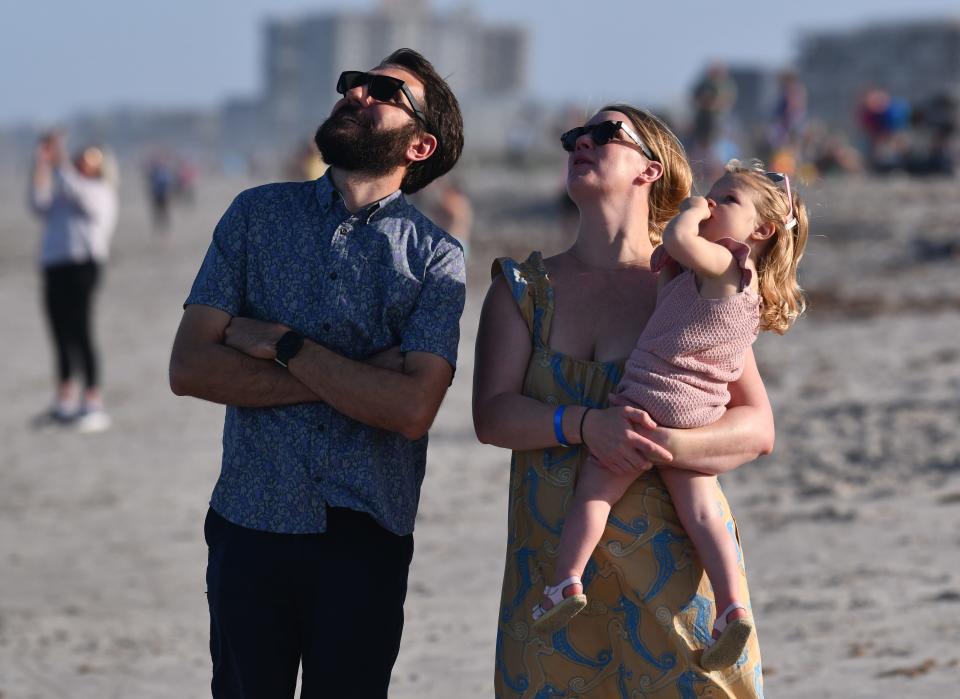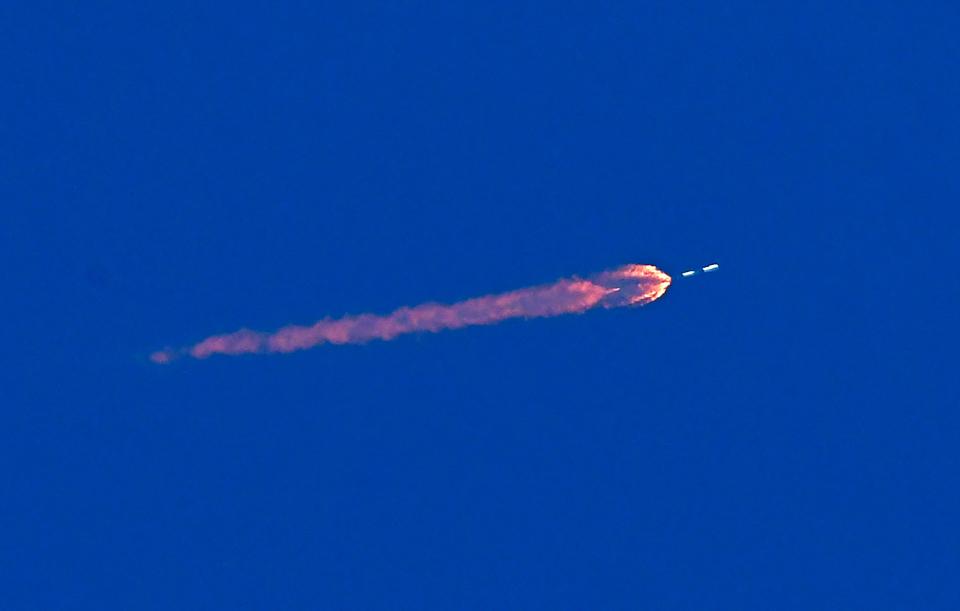SpaceX completes weekend launch doubleheader with Sunday Starlink liftoff from Cape Canaveral
Brevard County space buffs enjoyed a SpaceX Saturday-Sunday launch doubleheader weekend, with back-to-back Falcon 9 rockets sending satellites arcing up into orbit.
First up, SpaceX launched two Galileo satellites on Saturday night from NASA's Kennedy Space Center, boosting Europe's global navigation satellite system to 30 satellites.
Less than 24 hours later on Sunday, the second Falcon 9 lifted off at 6:08 p.m. EDT from Cape Canaveral Space Force Station on the Starlink 6-54 mission, giving Cocoa Beach spectators sunny daytime views of the ascending rocket.
That mission deployed another payload of 23 Starlink broadband satellites into the company's low-Earth orbit constellation.
Cape Canaveral: Is there a launch today? Upcoming rocket launch schedule for SpaceX, ULA, NASA in Florida
Sunday's mission marked the Falcon 9 first-stage booster's 13th flight, SpaceX reported. The booster previously launched CRS-26, OneWeb Launch 16, Intelsat IS-40e, O3b mPOWER, Ovzon-3, EUTELSAT 36D and six Starlink missions.
Following stage separation, the booster landed aboard the drone ship Just Read the Instructions out on the Atlantic Ocean 8 minutes.
Earlier Sunday, the European Union Agency for the Space Programme praised the Galileo mission.

“Galileo underscores the power of collaboration. With the European Commission, EUSPA and ESA working hand in hand. Galileo isn’t just about satellites; it’s a testament to our shared commitment to innovation, security, and progress," EUSPA Executive Director R. da Costa said in a press release.
"Together, we’re empowering billions worldwide, enabling precise navigation and enhancing transportation," da Costa said.
SpaceX crews also had a busy weekend in orbit. Sunday afternoon, SpaceX's Dragon capsule undocked from the International Space Station about 1:10 p.m. The spacecraft had launched to the ISS aboard a Falcon 9 on March 21 on NASA's CRS-30 resupply mission from Cape Canaveral Space Force Station.
Splashdown is expected about 1 a.m. Tuesday off the Florida coastline.

Looking ahead on the range calendar — though SpaceX has not yet made a public announcement — Federal Aviation Administration and National Geospatial-Intelligence Agency navigational warnings indicate the company is targeting Thursday night for its next Starlink mission.
Mission: A SpaceX Falcon 9 rocket will launch a batch of 23 Starlink internet satellites from Cape Canaveral Space Force Station.
Launch window: 9:17 p.m. Thursday to 1:48 a.m. Friday.
Location: Launch Complex 40.
Trajectory: Southeast.
Local sonic boom: No.
Booster landing: Drone ship out on the Atlantic Ocean.
Live coverage: Starts 90 minutes before liftoff at floridatoday.com/space.

For the latest news and launch schedule from Cape Canaveral Space Force Station and NASA's Kennedy Space Center, visit floridatoday.com/space.
Rick Neale is a Space Reporter at FLORIDA TODAY (for more of his stories, click here.) Contact Neale at [email protected]. Twitter/X: @RickNeale1
This article originally appeared on Florida Today: Weekend doubleheader: SpaceX launches Starlinks after Galileo mission
